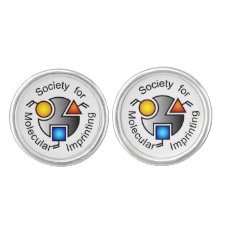
Authors: Iwanowska A, Yusa SI, Nowakowska M, Szczubialka K
Article Title: Selective adsorption of modified nucleoside cancer biomarkers by hybrid molecularly imprinted adsorbents.
Publication date: 2016
Journal: Journal of Separation Science
Volume: 39
Issue: (15)
Page numbers: 3072-3080.
DOI: 10.1002/jssc.201600132
Abstract: Modified adenosine nucleosides have been proposed to be potential DNA-based biomarkers for early diagnosis of tumor and a promising tool for the development of noninvasive prediction systems. However, the low concentration of modified adenosine nucleosides in physiological fluids makes them challenging for both quantitative and qualitative determination. Therefore, materials, which are potentially useful for selective adsorption of nucleobase-containing compounds, were obtained. To obtain the adsorbents, the silica gel particles were coated layer-by-layer with films of the polymers with different combinations of polymers containing thymine groups. Next, the microspheres were irradiated with UV light in the presence of 2'-deoxyadenosine or 5'-deoxy-5'-(methylthio)adenosine, as template molecules, which resulted in the photodimerization of thymine moieties and molecular imprinting of adsorbed modified adenosine compounds. The selectivity of the adsorption was significantly enhanced by the photoimprinting process. Eventually, the imprinted particles have shown an improved ability to recognize mainly 2'-deoxyadenosine and 5'-deoxy-5'-(methylthio)adenosine molecules. The best performing adsorbent was obtained using modified natural polysaccharides. The studied materials could serve as promising adsorbents of biomarkers for tumor diagnostics
Template and target information: 2'-deoxyadenosine, 5'-deoxy-5'-(methylthio)adenosine
Author keywords: adenine, adsorbents, cancer biomarkers, molecular imprinting, thymine



Join the Society for Molecular Imprinting

New items RSS feed
Sign-up for e-mail updates:
Choose between receiving an occasional newsletter or more frequent e-mail alerts.
Click here to go to the sign-up page.
Is your name elemental or peptidic? Enter your name and find out by clicking either of the buttons below!
Other products you may like:
 MIPdatabase
MIPdatabase









